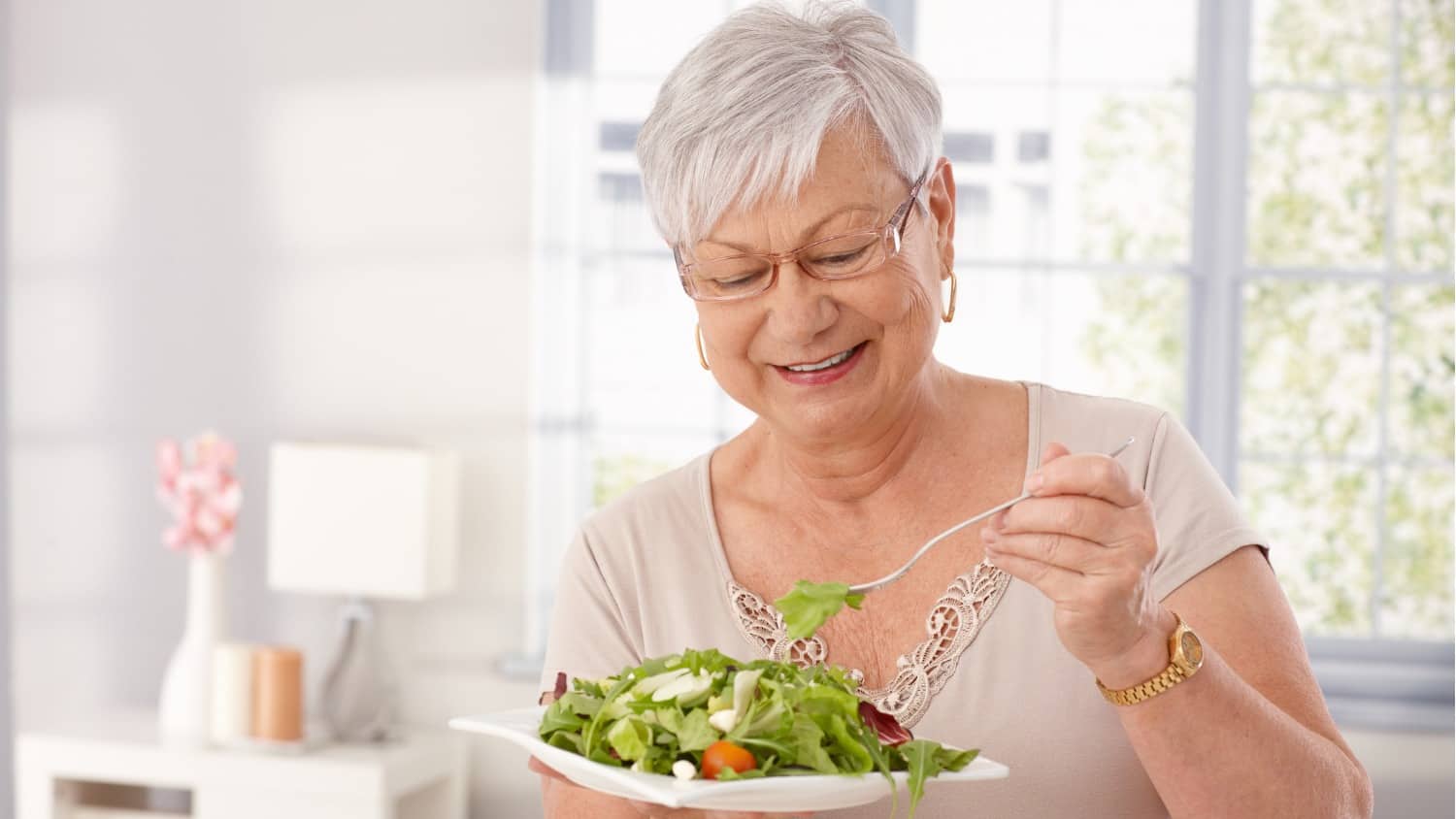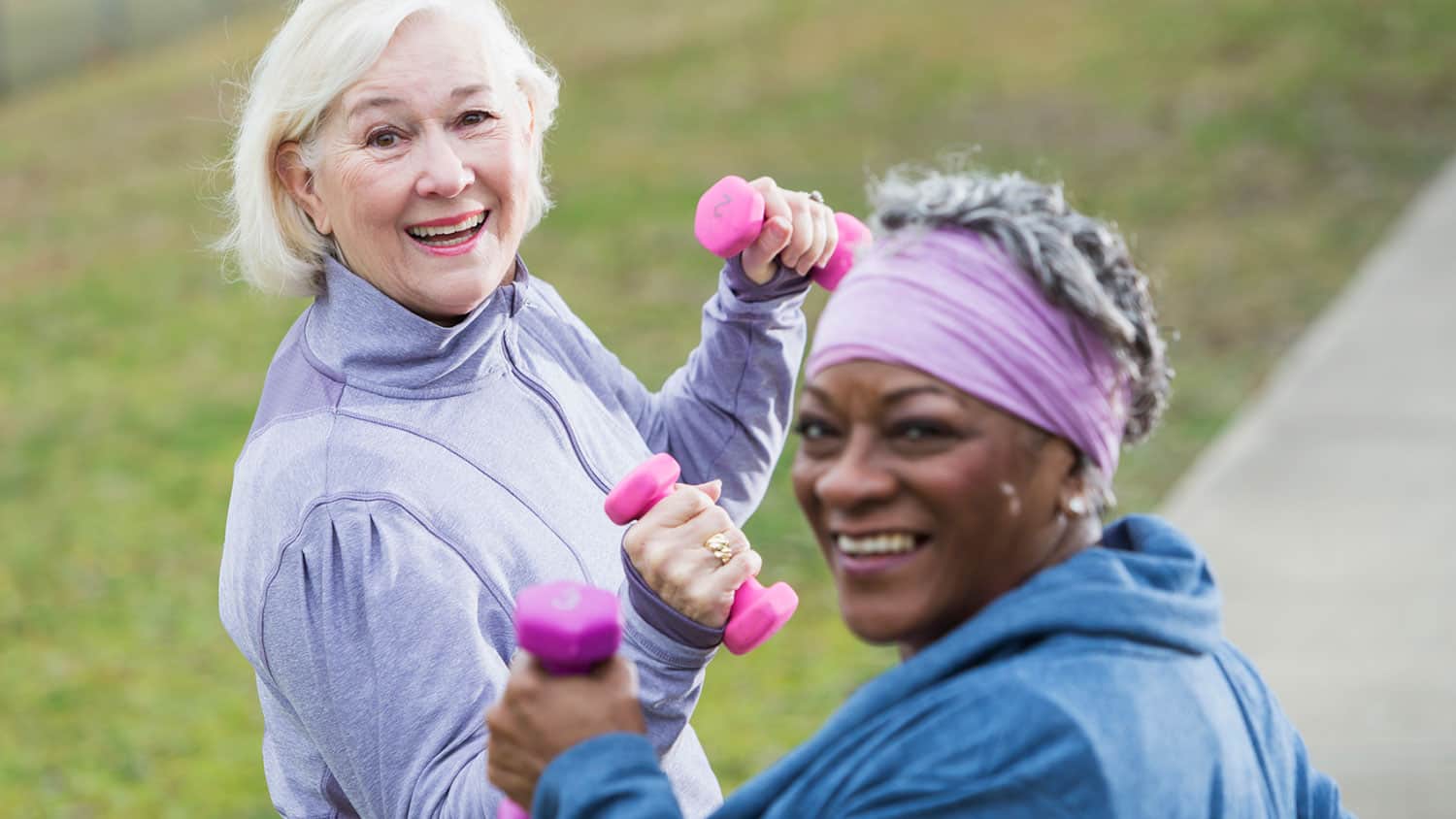Why Can’t I Lose Weight? How Trauma Sabotages Weight Loss for High Achieving Women (VIDEO)
High achieving women in their 50s and 60s who struggle with making consistently healthy food choices tend to have one thing in common: a history of trauma.
Even if these same women have spent years in therapy and are at peace with the traumatic event or relationship, the lingering effects of trauma can still impact eating and weight loss.
What Is Trauma?
Trauma describes the way your emotions, beliefs and biology change in response to something bad happening.
The traumatic event can be a one-time exposure like a natural disaster, or the cause of trauma can be more complex, such as being raised by someone with mental illness, an eating disorder or addiction.
Unfortunately, the typical strategy for weight loss, All or Nothing Dieting, can cause trauma and exacerbate existing issues, resulting in sabotage to weight loss.
With All or Nothing Dieting you either have to eat “perfectly” or “what’s the point?”, and high achieving women often fall prey to this style of dieting because they feel they “should” be able to “eat perfectly.”
If you are a high achieving woman in her 50s and 60s, here is what you need to know about trauma and weight loss.
#1: Trauma History and Dieting
Your trauma history is keeping your nervous system on high alert, and All or Nothing Dieting teaches you that food works to numb the emotional discomfort
Described in medical literature for Post-Traumatic Stress Disorder (PTSD) as hypervigilance, one of the long-term effects of trauma is an overactive nervous system, even if it doesn’t meet the severity needed for a PTSD diagnosis.
An overactive nervous system makes you feel unable to relax or like you are always waiting for the other shoe to drop.
All or Nothing Dieting teaches your overactive nervous system that food works to numb the constant fear and anxiety when you’re “off” your diet; thereby sabotaging weight loss.
Because food is so effective at helping you cope with stress, fear, and any other emotion that might surface, you ultimately stop trusting yourself to make consistent healthy choices.
The solution is to cultivate the Courage to Trust yourself again, healing the harmful physical, mental and emotional effects of both All or Nothing Dieting and trauma so you can have a supportive relationship with food, your body and your health and eat with joy instead of eating to seek joy.
To Cultivate the Courage to Trust, Start with Calming Your Nervous System
Rather than focusing entirely on food to fix eating issues (which doesn’t work), you can change your behavior by working to calm your activated nervous system, the first pillar of the Courage to Trust Method.
One way to calm your nervous system is to take a moment to check in with your body periodically throughout the day. Take a deep breath and mentally scan your body, where do you feel tension? How can you care for yourself to release that tension?
I’ll be covering more ways to calm your nervous system and cultivate the Courage to Trust at the upcoming live training: How to Stop Obsessing about Food and Create Consistently Healthy Choices.
#2: The Terror of the Scale
Your anxiety about the scale comes from the belief your worthiness as a human is tied to your weight.
One of the most damaging aspects of All or Nothing Dieting is the way it’s been used by our culture to shame women for their changing bodies.
The All or Nothing myth is that women of high moral character should be able to achieve a beauty ideal that most people’s genetics don’t set them up for.
The number on the scale then is seen as a measure of personal value and worth. No wonder getting on the scale can produce so much anxiety!
This kind of relationship with the scale can sabotage weight loss because it points to a motivation for change rooted in self-disgust and fear of abandonment, and in my clinical practice I have never seen these motivations lead to sustainable change.
To Cultivate the Courage to Trust, Develop Self-Compassion
The solution to anxiety-producing weigh-ins and harmful motivations is provided by the second pillar of the Courage to Trust Method: Self-compassion.
Self-compassion involves treating yourself like you would a beloved friend and accepting, acknowledging and validating your emotions.
Applied to the scale, you can recognize how you are feeling about your weight, that your suffering makes sense and others experience it too, and use loving self-talk instead of self-criticism.
Many fear that self-compassion will allow them to enable their bad habits. Dr. Kristin Neff counteracts this fear when she talks about “fierce” self-compassion, the idea that self-compassion brings out your inner mama bear for your own self.
My advice: try self-compassion, it’s much nicer than the alternative.
#3: Inconsistent Eating Habits
Food obsession is caused by alternating between eating anything and everything, and restriction.
Whether you are in a period of restriction or indulgence, All or Nothing Dieting will always lead to feeling obsessed with food.
This preoccupation with food sabotages weight loss and your quality of life because you are constantly criticizing your eating habits and suffering from food guilt.
The Solution to Food Obsession Is Found in the Third Pillar of the Courage to Trust Method: Listening to Self
Once you understand what needs your food cravings are communicating, you can meet those needs without eating.
And yet, the result of trauma is often that it feels unsafe to explore your own needs or emotions.
That’s why it’s important to focus on calming your nervous system first, so the constant need to fight or flee doesn’t get in the way of listening to your needs. And then, the work of self-compassion is needed so self-criticism doesn’t make it unsafe to explore your needs.
If you’re ready to cultivate the Courage to Trust so you can be free from food and weight obsession and achieve your health goals, you can review the Courage to Trust Method and book a free consult call.
Do you have the courage to trust yourself around food? What have your eating habits taught you about yourself? Have you shown self-compassion toward yourself and in what ways?







Wow! I’m 72 years old and I have never seen an article like this before! Attributing overweight to a trauma history makes absolutely perfect sense to me. As a childhood trauma survivor, i’ve been told since I was a little kid that I was fat and needed to go on a diet. Nobody tried to understand why EATING kept me going – in more ways than one. I’ve been eating what ails me for decades.
Thanks for your comment Kathleen, I’m so glad this article was helpful to you! Please get in touch if you’d like support to heal your relationship with food, there is hope!